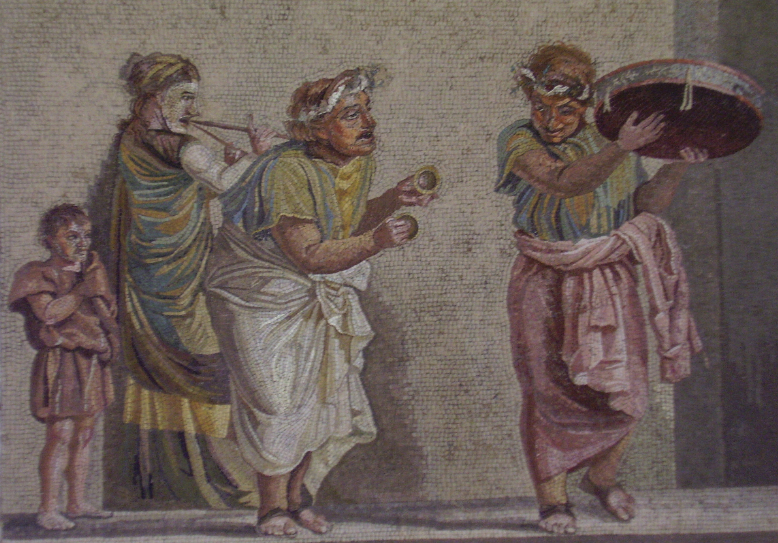SCHEDULE
section (capitulum)
and line (versus)
numbers for the Satyricon refer to Lawall's
edition
|
SEPTIMANA
|
LUNAE
DIES
|
MERCURII
DIES
|
VENERIS
DIES
|
I
Aug. 27, 29, 31
|
Exordium
|
Capitulum I versus
1-19
|
Capitulum I versus
20-39 |
II
----, Sept. 5, 7
|
Dies
Laboris
(nullae scholae)
|
Capitulum I versus
40-58 |
Capitulum I versus
59-76
|
III
Sept. 10, 12, 14
|
Capitulum II.1
versus 1-21 |
Capitulum II.1
versus 22-42 ("fixus") |
Capitulum II.1
versus 42-64 |
IV
Sept.17, 19, 21
|
Capitulum II.1
versus 65-86 ("eriperemus") |
Capitulum II.1
versus 86-108 |
Capitulum II.1
versus 109-129 |
V
Sept. 24, 26, 28
|
Capitulum II.1
versus 130-151 |
Capitulum II.2
versus 1-20 |
Capitulum II.2
versus 21-42 |
VI
Oct. 1, 3, 5
|
Capitulum II.2
versus 43-68 ("derectum") |
Capitulum
II.2
versus 68-92 |
Examen
Primum
|
VII
Oct. 8, 10, 12
|
Capitulum
II.2
versus 93-119 ("delebit") |
Capitulum
II.2
versus 119-144 ("comedit") |
Capitulum II.2
versus 144-162;
Cap II.3 vers. 1-8 ("fieri")
|
VIII
Oct. 15, 17, 19
|
Capitulum II.3
versus 8-33 |
Capitulum
II.3
versus 34-60 |
Capitulum II.3
versus 61-65
Cap II.4 vers. 1-20
|
IX.
Oct. 22, 24, 26
|
Capitulum II.4
versus 21-47 |
Capitulum II.4
versus 48-75 |
Capitulum II.4
versus 76-81
Cap II.5 vers. 1-18
|
X
Oct. 29, 31, Nov. 2
|
Capitulum II.5
versus 19-45 ("implevit") |
Capitulum
II.5
versus 45-72 ("stabat") |
Capitulum II.5
versus 72-98 ("accipiet") |
XI
Nov. 5, 7, ----
|
Capitulum II.5
versus 98-127 ("interire") |
Examen
Secundum |
doctor et
collegae
Civitatem Ventosam
conveniunt.
(nullae scholae Latinae)
|
XII
----, Nov. 14, 16
|
Dies Veteranorum
Observata
(nullae scholae)
|
Capitulum II.5
ver. 127-157 ("unguebam")
|
Capitulum II.5
vers. 157-186 ("exposuit")
|
XIII
Nov. 19, ----, ----
|
Capitulum II.5
versus 186-216 |
Dies
Gratias Agendi:
meleagridophagia optionalis
(nullae
scholae)
|
XIV
Nov. 26, 28, 30
|
Capitulum II.5
versus 217-228
Capitulum III 1-23 |
Capitulum
III
versus 24-54 |
Capitulum III
versus 55-78
Cap. IIII vers. 1-8
|
XV
Dec. 3, 5, 7
|
Capitulum IIII
versus 9-36 |
Capitulum V
versus 1-25 |
Hic locus
intentionaliter
vacuus est.
|
ULTIMA
|
Examen Ultimum: Wednesday Dec. 12,
11:30AM-2:00PM
|


